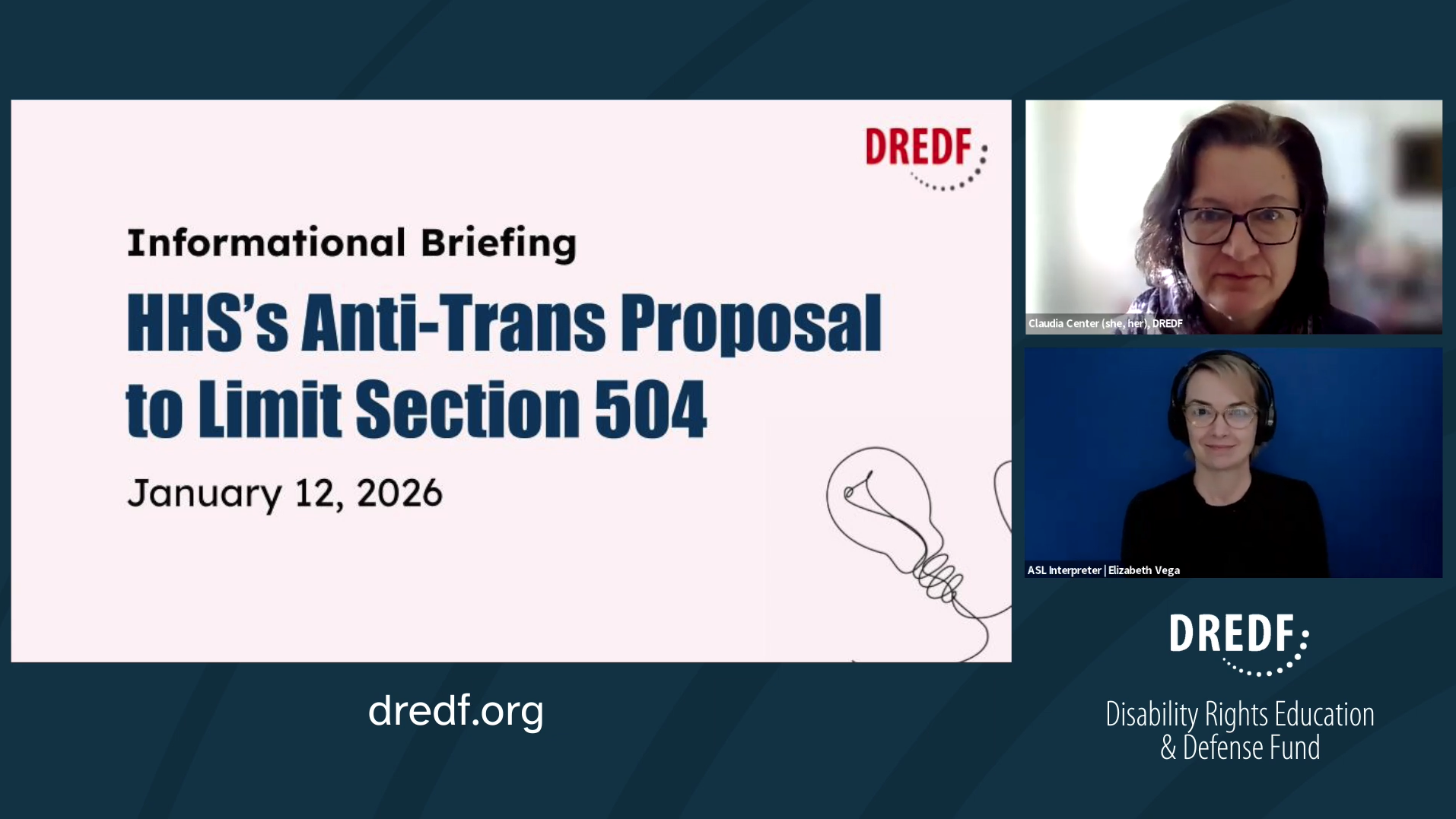September 28, 2023
It’s Not What You Think
The Section 8 Housing Choice Voucher program (“Section 8”) provides rent assistance payments to private landlords on behalf of low-income individuals and families, so it is easier for those individuals and families to afford decent, safe, and sanitary housing. Families approved for Section 8 assistance are typically expected to pay up to 30% of their adjusted gross income toward rent and utilities each month.[1]
In California, Section 8 vouchers currently help pay rent for more than 300,000 households. For these households, the Section 8 program is the difference between housing stability and being unhoused.
Section 8 is particularly important to people with disabilities, who are disproportionately “priced out” of the housing market and experience high rates of housing insecurity.
It has been illegal to discriminate against Section 8 participants under California law since January 1, 2020. Still, discrimination against Section 8 participants is common and impacts people with disabilities more than other groups.
Lawsuits filed against housing providers are not enough to fix the problem of landlords not accepting Section 8. Myths about the Section 8 program are widespread and make landlords unwilling to rent to Section 8 participants. Below, we separate some Section 8 fictions from Section 8 facts.
Heading 2
Heading 3
Fiction: Section 8 tenants are problem tenants.
Facts:
- There are no documented statistics showing that Section 8 participants are more likely to damage units or violate lease terms when compared to other tenants.
- It is the right and responsibility of landlords to screen prospective tenants and ensure that they choose individuals who are going to be good tenants. Landlords are allowed to screen Section 8 participants in the same way they screen others to avoid problem tenants.[2] The laws prohibiting discrimination against Section 8 participants do not require a landlord to accept a Section 8 tenant who has a history of evictions or bad references.
- Section 8 participants are bound by the terms of their rental agreements and are subject to eviction just like any other tenant.[3] The laws prohibiting discrimination against Section 8 participants do not prohibit a landlord from evicting a tenant who breaks lease terms.
- Tenants may lose their Section 8 Voucher if they are evicted for lease This provides an incentive for Section 8 participants to comply with their lease terms and not to cause problems. Once a Section 8 participant loses their voucher, it is very difficult to get it back.
- More than 50 percent of vouchers serve elderly or non-elderly disabled families. About 45 percent of vouchers assist single-parent families. It is an unfair stereotype that receipt of Section 8 signals that an individual is a bad or undesirable person. These are simply people with a financial need.
Fiction: The Housing Authority has burdensome inspection requirements.
Facts:
- It is true that there is paperwork and an inspection required to be approved as a Section 8 landlord. However, these should be viewed as safeguards, not burdens.
- Generally, Housing Authorities inspect units before housing contracts are signed between Section 8 participants and landlords and then every two years thereafter. The Housing Authority checks to make sure that the unit meets mandatory minimum health and safety standards. For example, the housing authority will check the working order of smoke detectors and carbon monoxide detectors, ensure there are no structural defects, and check for vermin and cockroaches. The items checked by the Housing Authority are generally items that most landlords would want to inspect themselves before renting a unit to anyone, regardless of Section 8 status.
Fiction: It is too risky to rent to Section 8 tenants – they may not pay rent and they turnover frequently.
Facts:
- Under the Section 8 program, participating landlords receive timely and dependable rent assistance payments from the Housing Authority each month. Payments are made directly into the property owner’s account, no worrying about lost checks or late payments. Risk of non-payment is negligible.
- Section 8 tenants are usually long-term tenants. A 2017 study by the Department of Housing and Urban Development showed that the average length of tenancy for participants in the Section 8 program consistently increased from 2005 through 2015, and in 2015 averaged 6.6 years. Because tenants often have a hard time finding landlords who will accept vouchers—despite Section 8 discrimination being illegal—they tend to stay longer-term. That means lower turnover and vacancy rates.
Fiction: Landlords can’t charge Section 8 participants market rent.
Facts:
- Landlords can, and do, charge Section 8 participants market rent.
- The Housing Authority must determine that the proposed rent is reasonable, meaning, similar to other comparable housing units in the area with the same amenities.[4]
- In the event a Section 8 tenant’s income changes, the portion of rent paid by the Housing Authority and the tenant share can be adjusted to reflect this change, but the overall amount paid to the landlord does not change. This provides financial protection to landlords in the event a tenant’s income decreases. In such an instance, there is a process for the Housing Authority to pay a larger portion of the rent to the landlord, so the landlord continues to receive a full market rent rental payment.
Fiction: Landlords can never raise the rent on a Section 8 participant.
Fact:
- Landlords may request a rent increase at the annual anniversary of their housing assistance payment contract. The request must be made in writing to the Housing Authority, in the form and manner required by the Housing Authority.[5]
Fiction: Section 8 tenants bring down property value and deter other renters.
Fact:
- The belief of some landlords that Section 8 participants are undesirable, bring down housing values, and deter other renters is baseless and the result of discriminatory biases and stereotypes. Housing vouchers are assigned to people, not properties, and most tenants on the private market are unaware of who in their community is a Section 8 participant. Neighbors typically don’t share or discuss their sources of income with each other, or detail exactly how they pay their rent.
[1] 24 C.F.R. § 982.1(a)(3)
[2] 24 C.F.R. § 982.307
[3] 24 C.F.R. § 982.310
[4] 24 C.F.R. § 982.507
[5] 24 C.F.R. § 983.302




